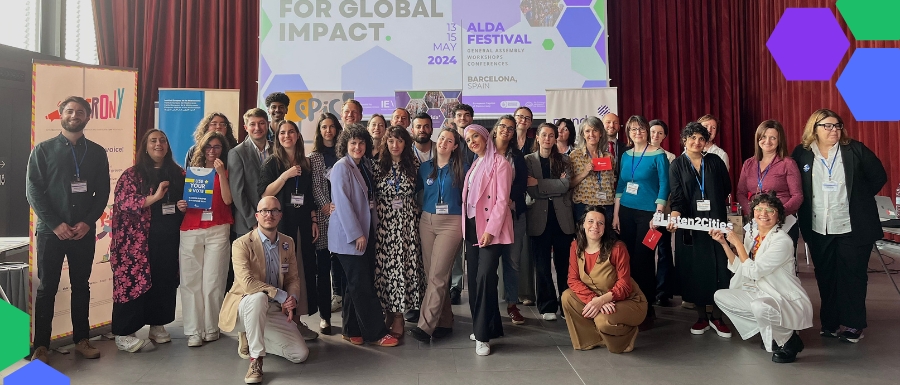Not just a General Assembly, but a Festival! On May 13, 2024, ALDA convened its annual General Assembly in the vibrant city of Barcelona, Spain. The following two days were a whirlwind of panels, conferences, workshops, and sessions, featuring keynote speakers who engaged passionately with the audience on critical topics like digitalisation, gender and inclusion, civic participation, enlargement, and much more.

“Local Democracy and Migration: Changing the communities: the role of local authorities in addressing the migration phenomena”, a panel discussion that aimed at enlightening the role of regional and local actors in addressing migration challenges in line with Human Rights principles and dignity of human beings and that saw the presentation of the ALDA Flagship initiative on Migration. Read more here.
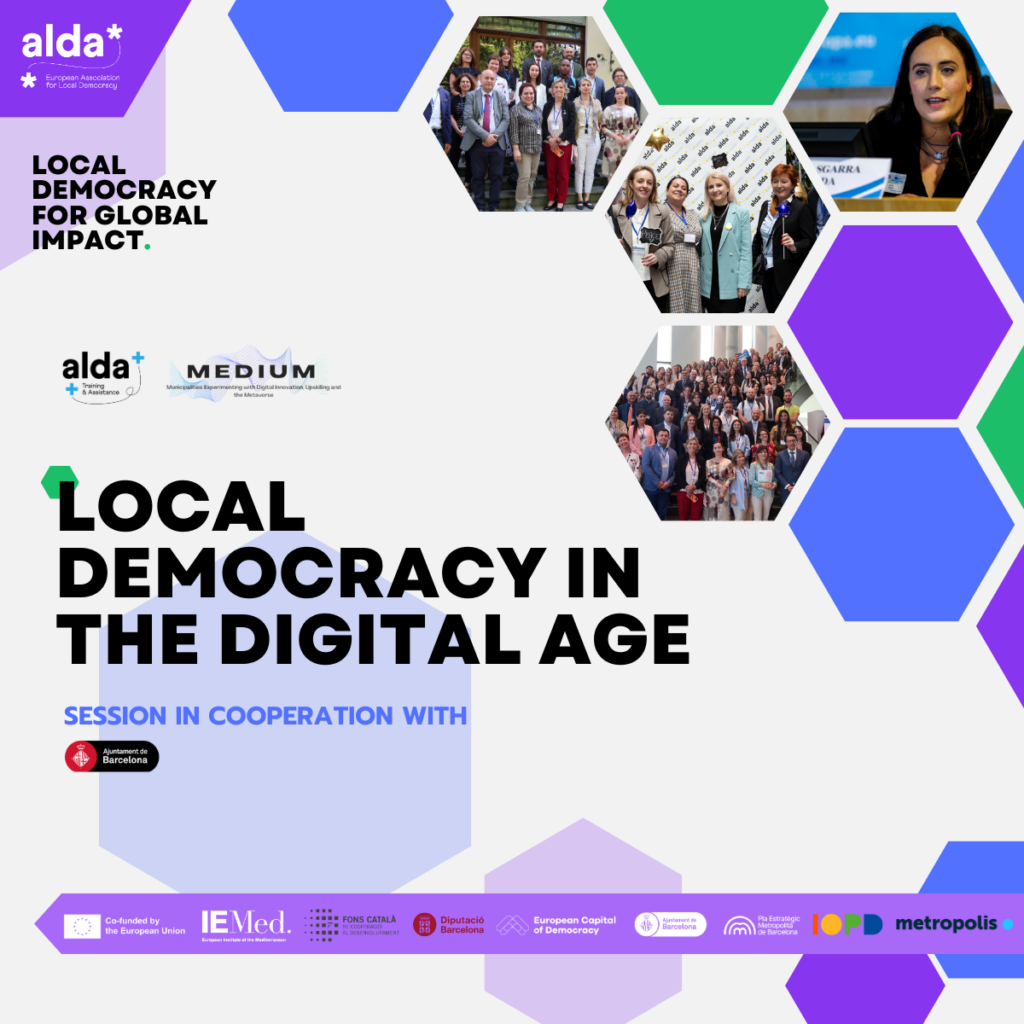
“Local Democracy in the digital age: towards unexploited opportunities and future challenges” offered the unique opportunity to see the participation of key stakeholders from international, European, and local spheres sharing good practices regarding the utilisation of digital tools to foster civic participation, namely AI as well as immersive technologies such as metaverse, virtual reality, and augmented reality. Read more here.

“Tool fair on Intercultural Dialogue in Mediterranean Cities”: A panel discussion, organised in cooperation with the Anna Lindh Foundation, brought together selected members from the French and Spanish networks who have developed methodologies and activities focused on intercultural dialogue. These experts shared their insights and experiences with peers from other Mediterranean organisations.
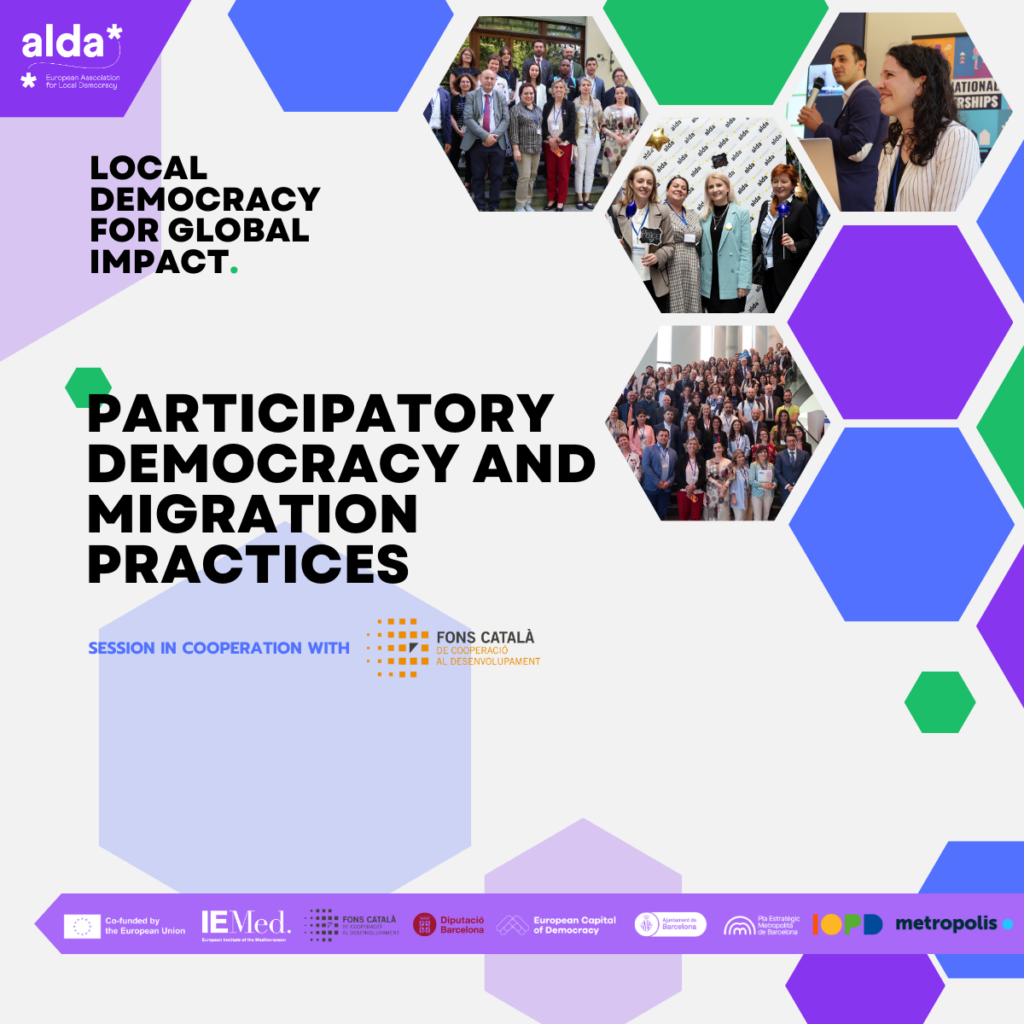
“Participatory Democracy and Migration Practices: integrated cities for migrants Inclusion Multi-Sectoral collaboration” an event aimed to present the findings of projects on the role of regional and local actors in addressing migration challenges in line with Human Rights principles and the dignity of human beings. Read more here.
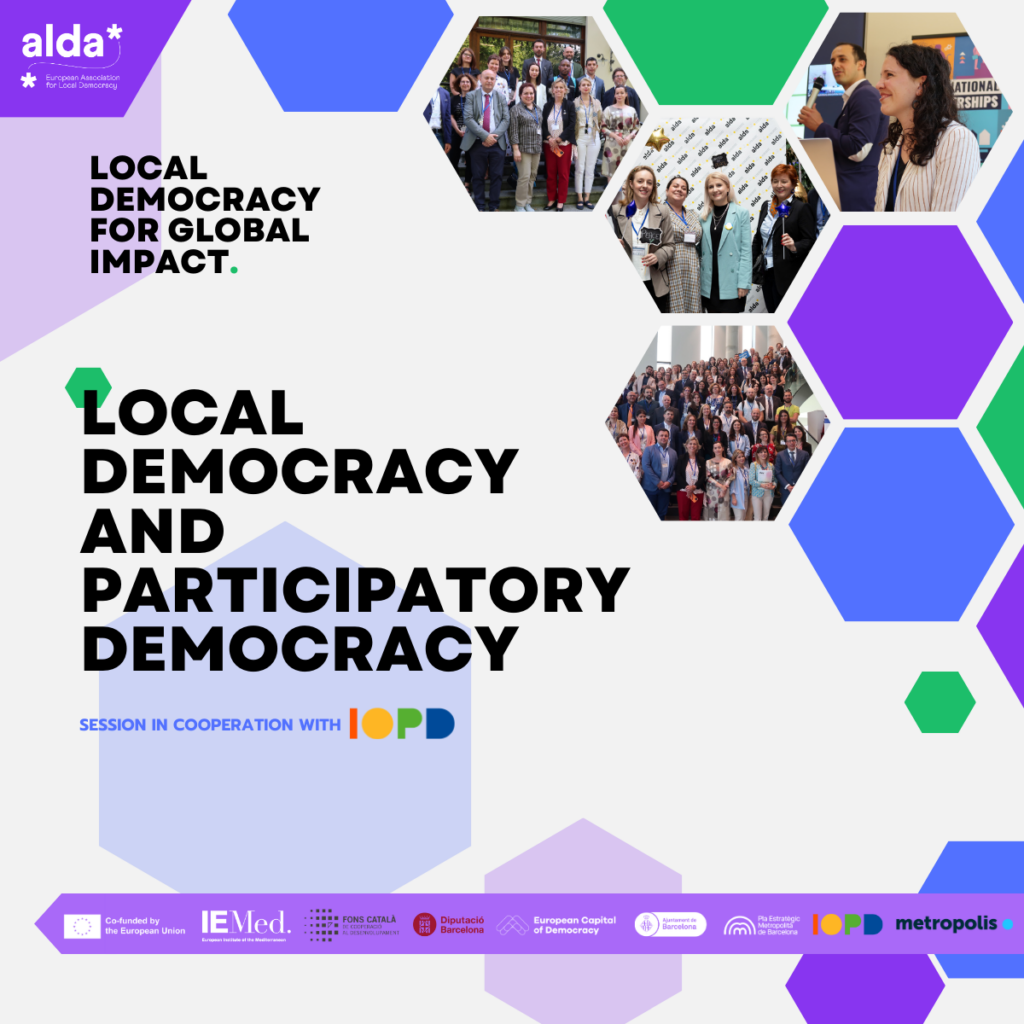
“Local Democracy and Participatory Democracy: models and contexts of implementation, innovation and challenges” a workshop discussion that provided an update on the evolution of EU policies and support to projects in the context of the Defense of Democracy Package. It also consisted in an exchange on the concerns and opportunities for civil society and local authorities.
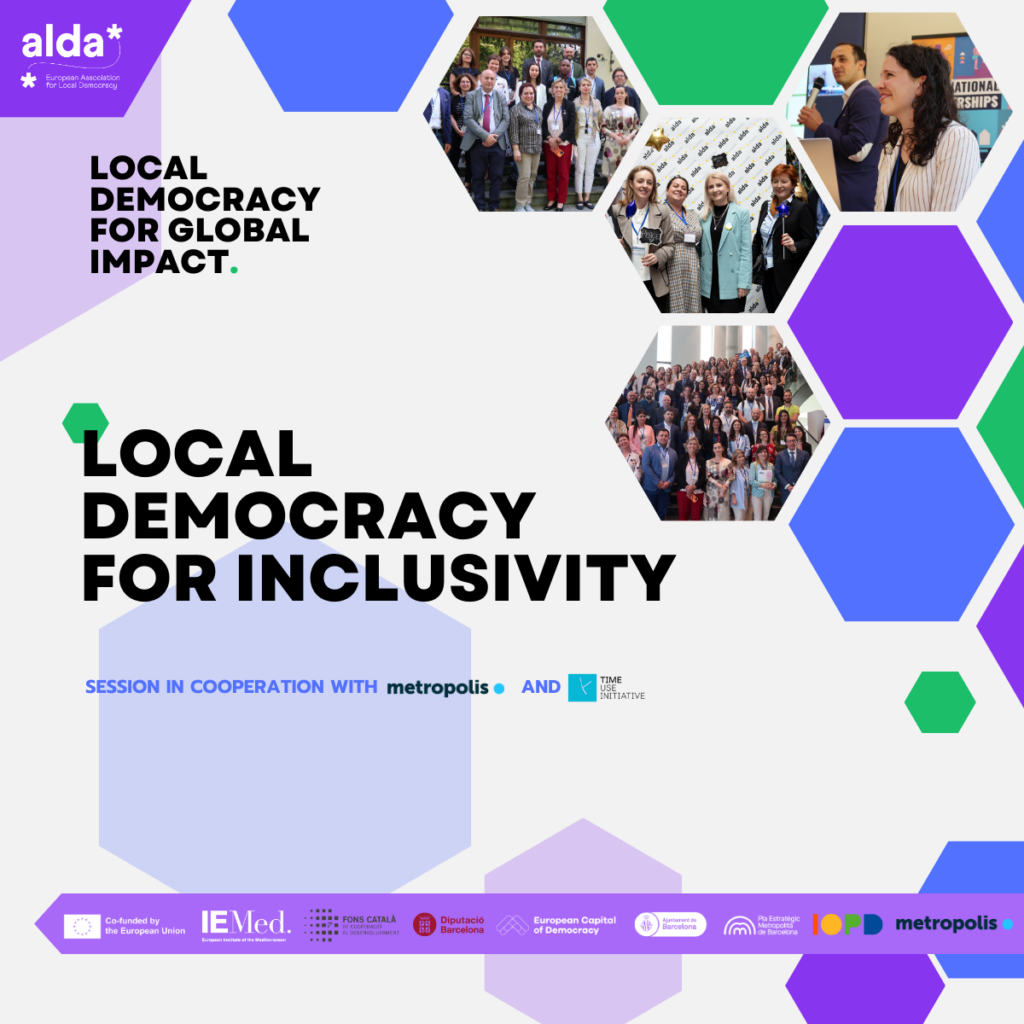
“Local Democracy for inclusivity: exploring gender equality and human rights in urban spaces, time policies and the political sphere” a roundtable discussion which featured diverse perspectives from experts, practitioners, and advocates in the field of gender equality in various fields. The intersection of gender equality and inclusive governance in urban spaces is crucial for empowering women and enhancing their political participation.
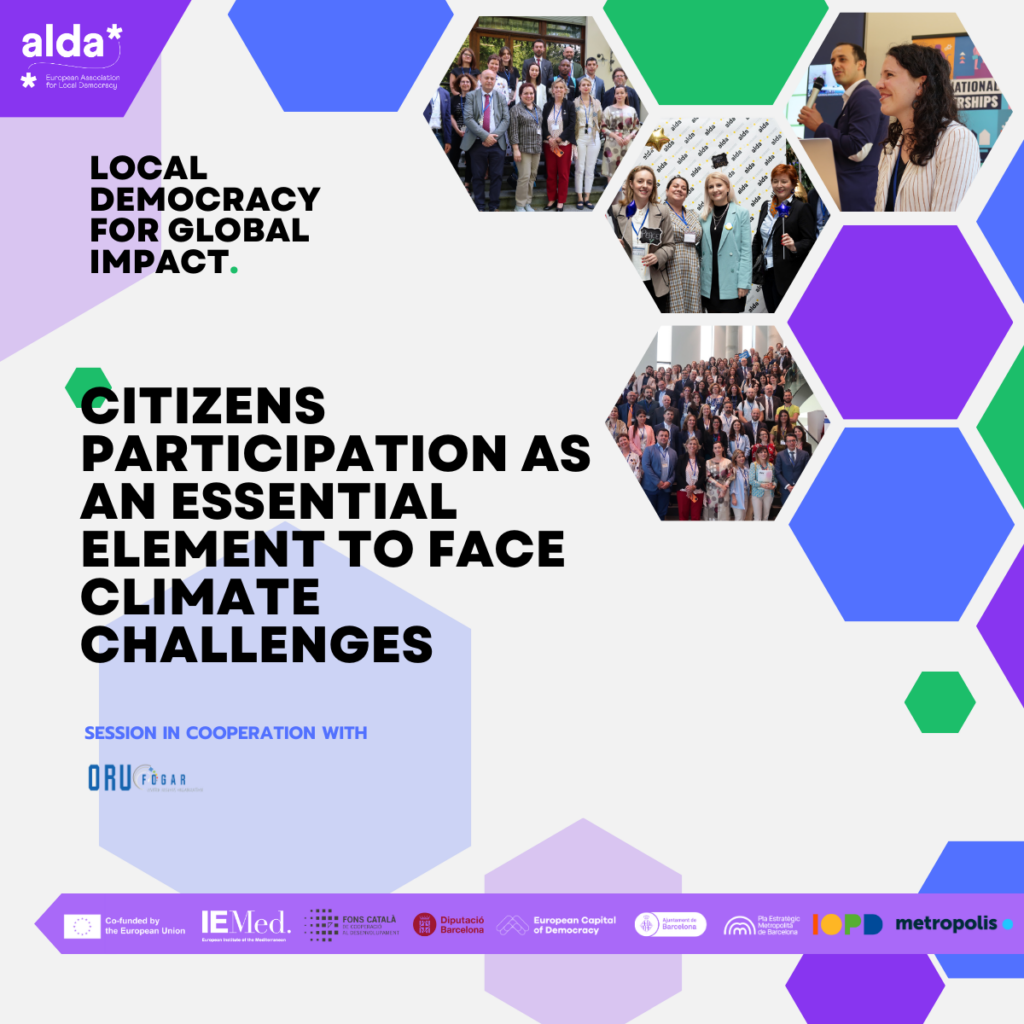
Citizens participation as an essential element to face climate challenges” : an event aimed at addressing the importance of citizen engagement in tackling climate-related challenges, particularly in the context of initiatives like the European Green Deal. The escalating impacts of climate change and other global issues highlight the urgency for collective action. This panel discussion saw the participation of ALDA members coming so far as Buthan!
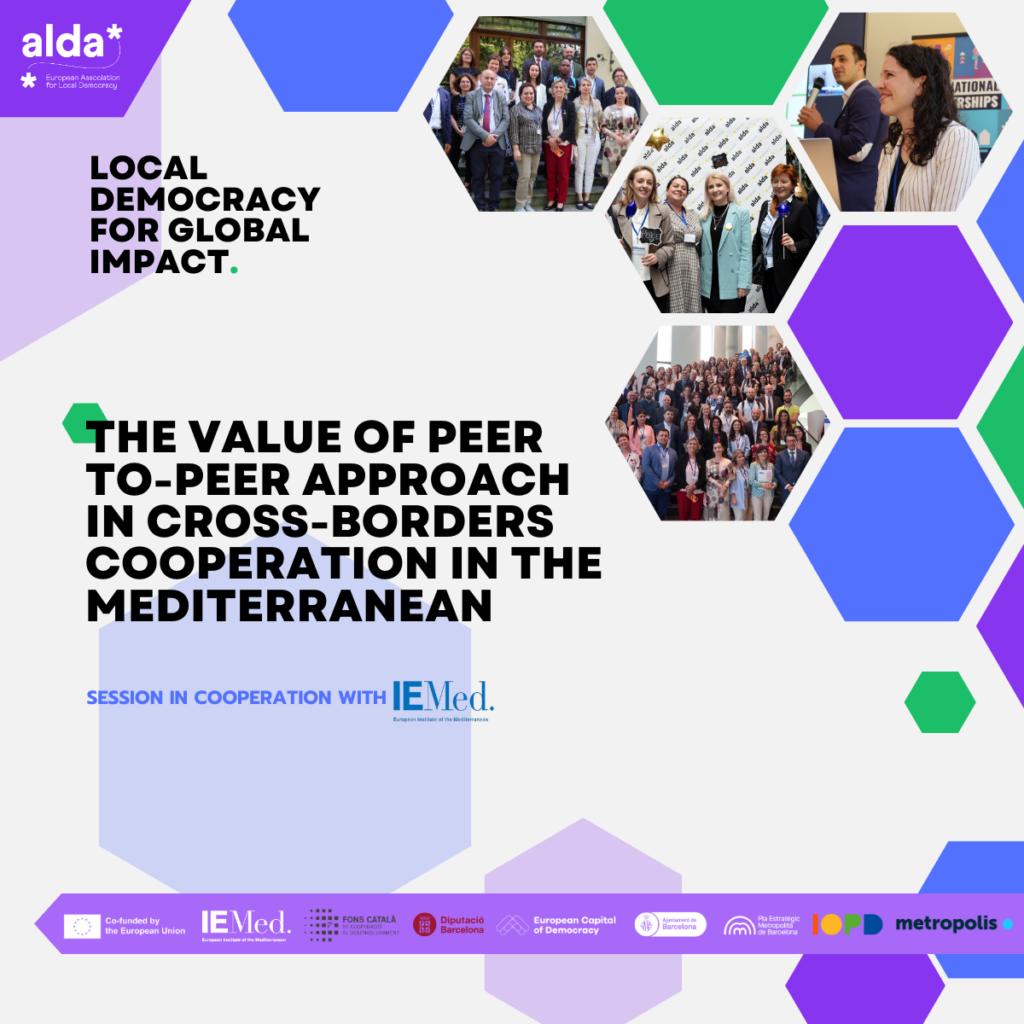
“The value of peer-to-peer approach in cross-borders cooperation in the mediterranean” : This panel, organised with the IEMed and the participation of the Union for the Mediterranean (UfM), served as a reflection about the challenges of the current trends in decentralised cooperation, identifying in what ways it could be reinforced, in particular to the enhanced proactiveness of EU local authorities.
The day concluded with a marketplace, where various organisations, including the European Capital of Democracy, Mundus, and the Human Rights Cities Network, among many others, showcased their activities to the participants.
The third and last day foresaw the following panel discussions:
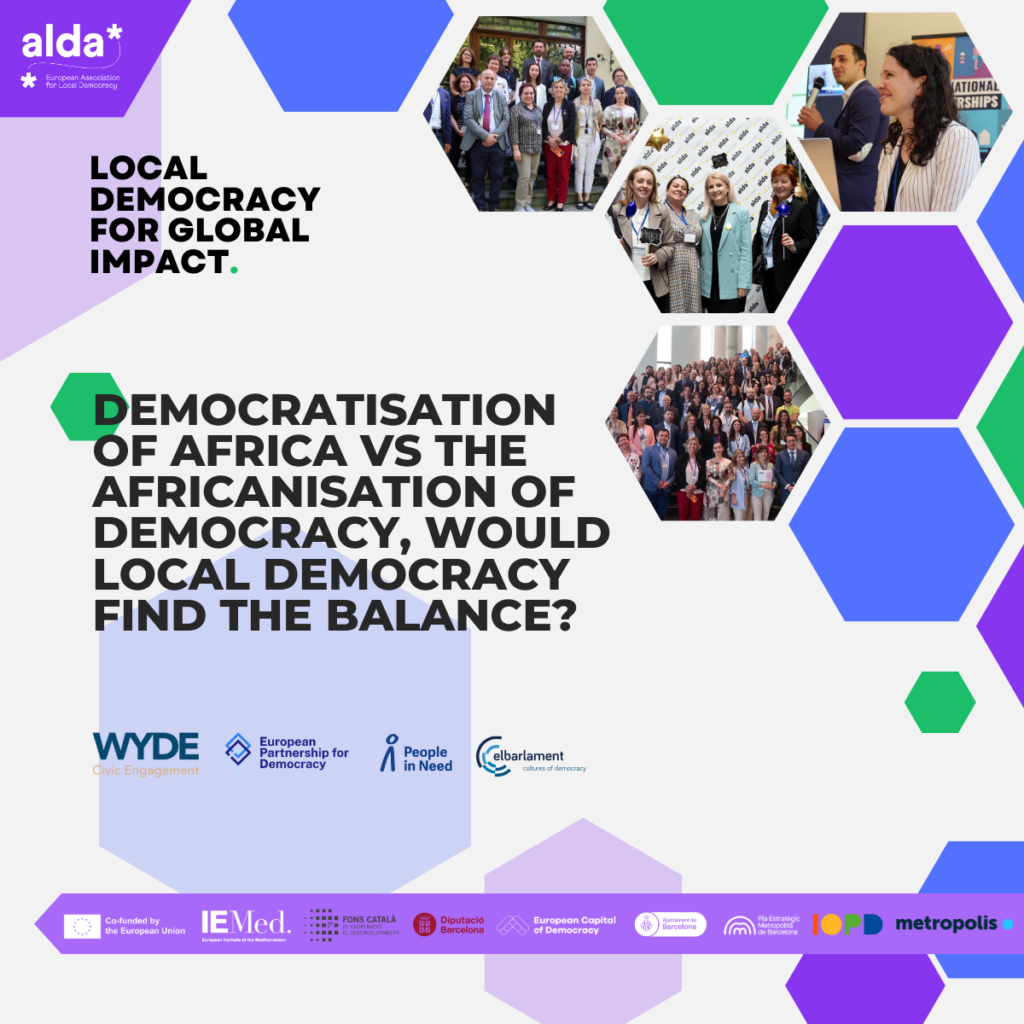
“Democratisation of Africa Vs the Africanisation of democracy would local democracy find the balance?” A panel discussion was convened to explore the balance between democratisation in Africa and the Africanisation of democracy. The event featured an overview from the European Commission, highlighting the main challenges and their commitment to the continent. Additionally, the European Partnership for Democracy (EPD) and ALDA jointly presented their roles within the WYDE Civic Engagement Programme.
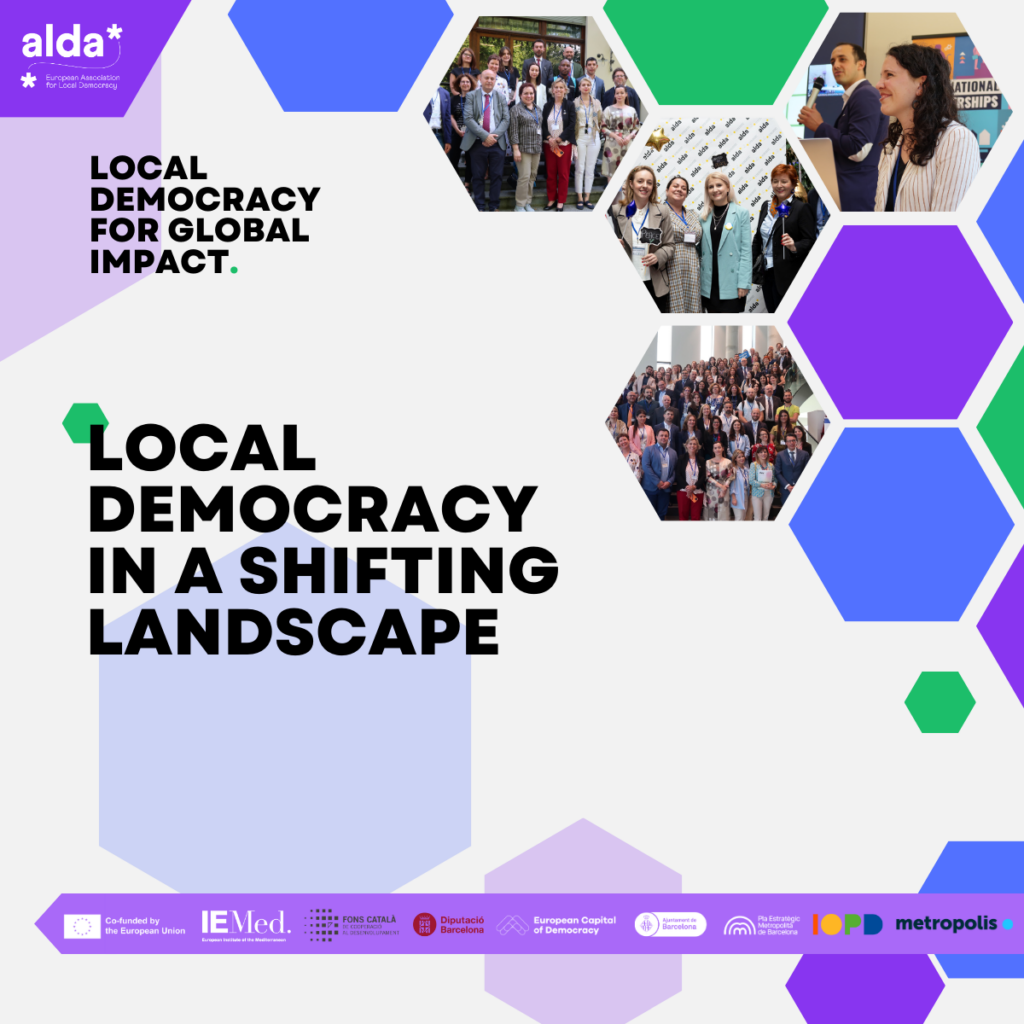
“Local Democracy in a shifting landscape: reassessing EU enlargement agenda in eastern partnership countries and its implications.” The event brought together policymakers, practitioners, and civil society representatives to discuss how the Local Democracy Agencies and their specific way to implement the Territorial Approach for Local Development can bring an added value to the enlargement policies.The panel discussion aimed to foster constructive dialogue and collaboration among stakeholders to address the complex challenges and opportunities associated with EU enlargement. Read more here.
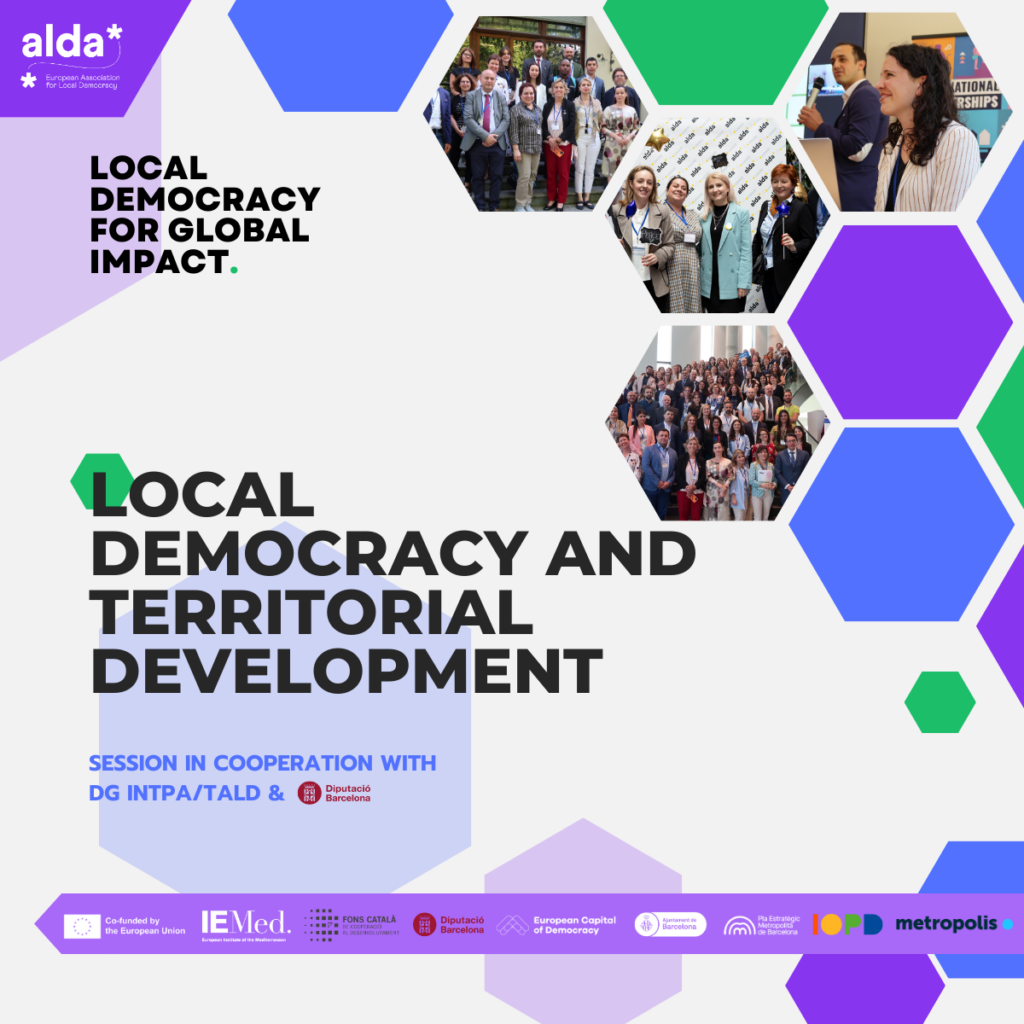
Local Democracy and Territorial Development: a great heritage towards new perspectives: Recognising local government’s crucial role in addressing global challenges, there are still unresolved issues limiting their full potential in sustainable development. The benefits of decentralised cooperation often go underestimated and are not effectively communicated to citizens. However, it presents an intriguing collaboration model when inclusive and integrated with other programmes. Co-organised with DG-INTPA, the TALD Facility, and the Provincial Deputation of Barcelona, this round table aimed to contribute to current debates. It emphasised the need for multi-stakeholder networks, rooted in lasting practices, to mobilise “territorial intelligence” and indigenous knowledge. Read more here.
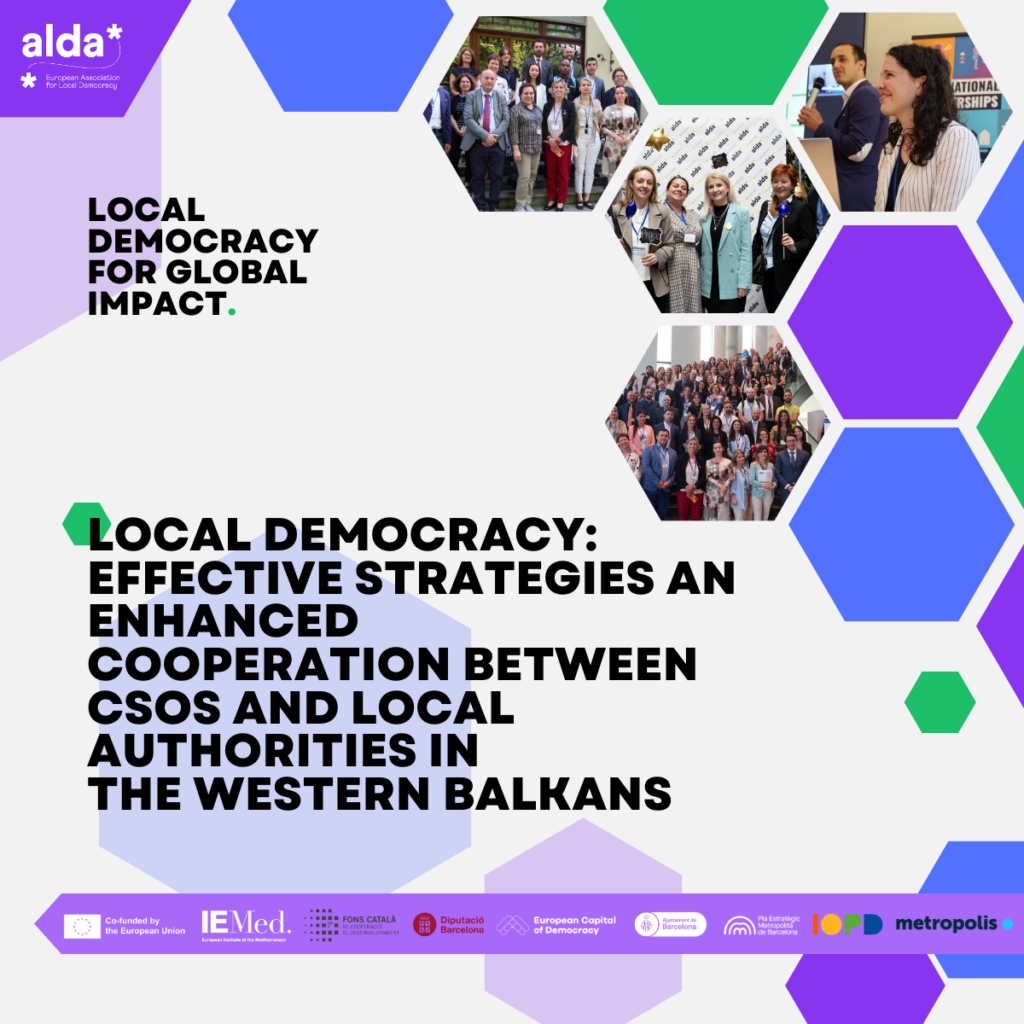
“Local Democracy: Effective strategies and enhanced cooperation between CSOs and Local Authorities in the Western Balkans.” In this session, experts in civil society development, government representation, and European integration discussed effective strategies for local democracy in the Western Balkans. The panelists explored how CSOs advocate for policy changes, mobilise communities, and hold governments accountable. They also examined the role of local governance structures in working with CSOs to empower citizens, promote transparency, and enhance accountability. Read more here.
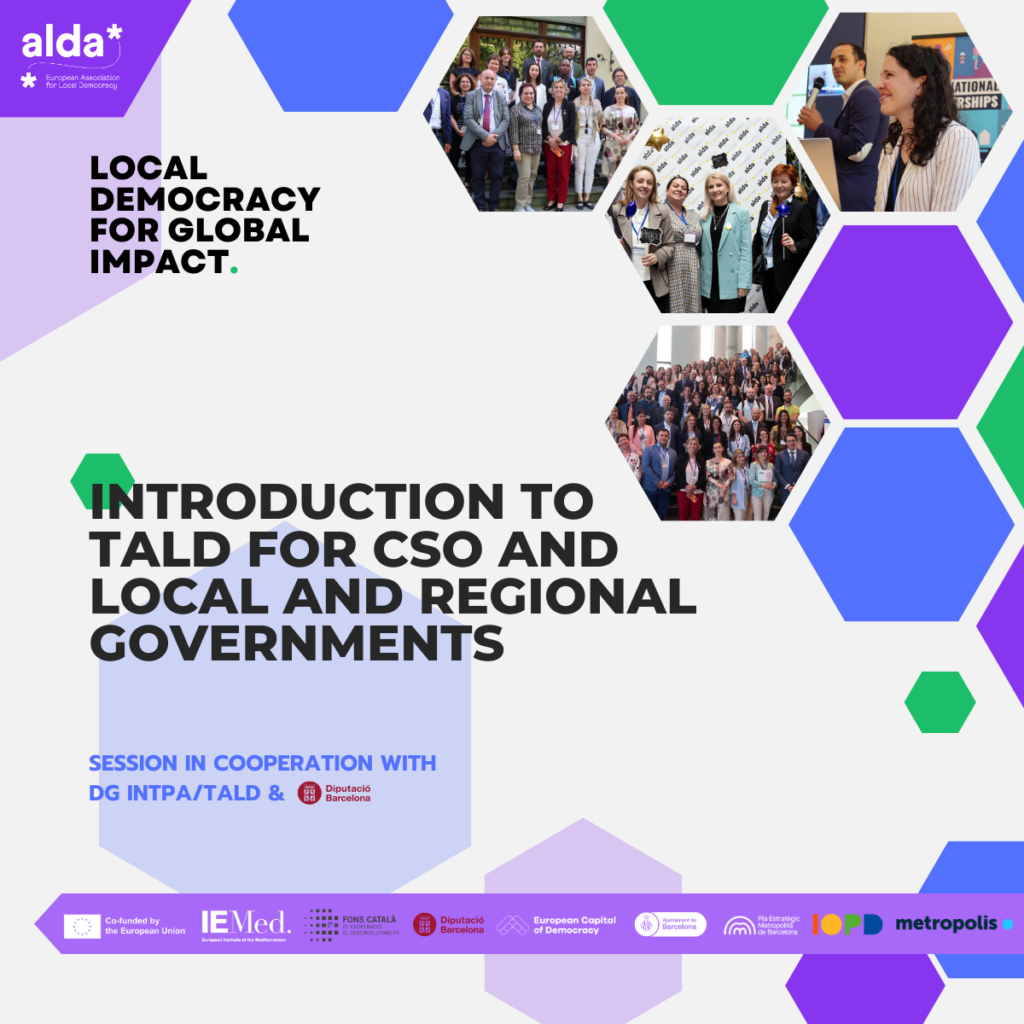
“Introduction to TALD for CSOs and Local and Regional Authorities.” The workshop featured two key segments. The first provided a methodological framework on the TALD approach, detailing its implications and benefits for participating territories. The second segment offered an analytical update on the current state of decentralization policies in Africa, highlighting recent policies and decisions, challenges faced by local and regional governments, and priority opportunities for EU support. This discussion was framed in the context of the 10-year anniversary of the 2013 EC Communication “Empowering Local Authorities in Partner Countries for Enhanced Governance and More Effective Development Outcomes.” Read more here.
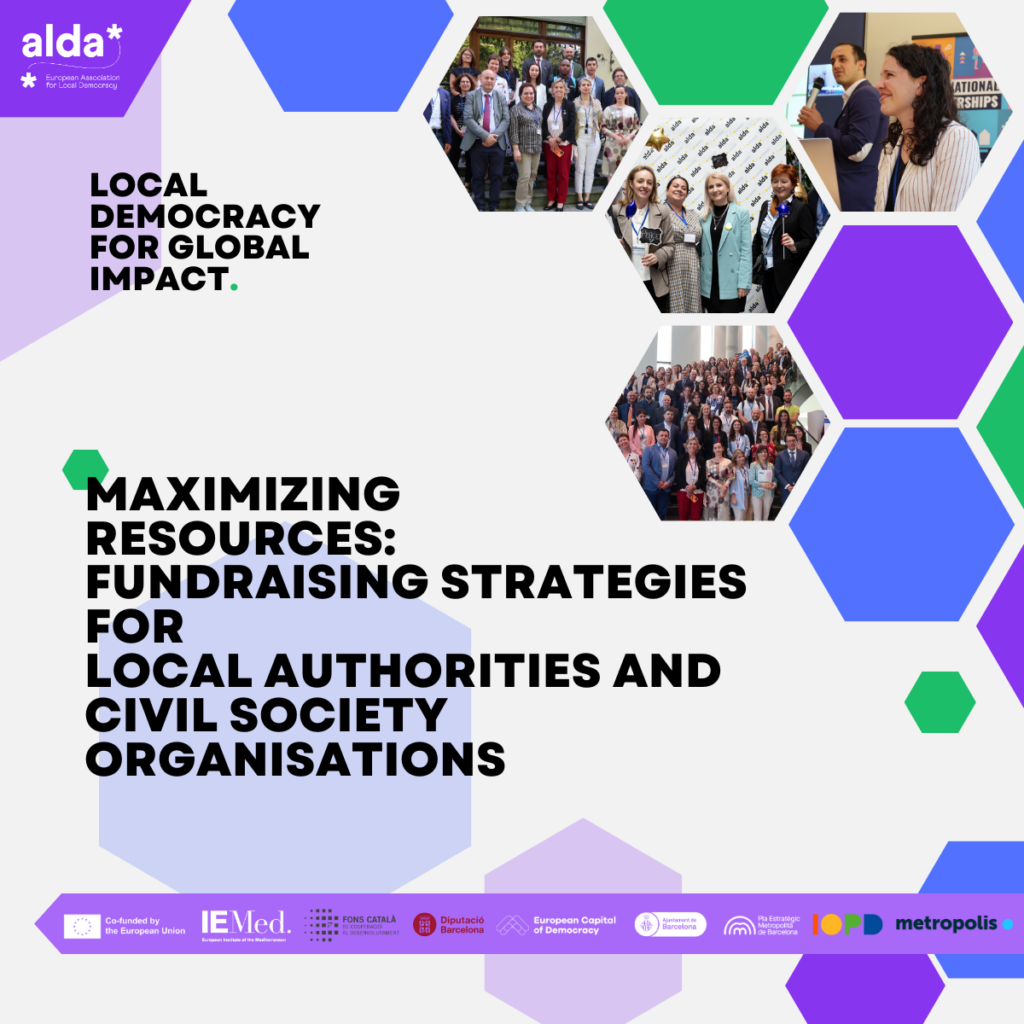
“Maximising Resources: fundraising strategies for Local Authorities and Civil Society Organisations”. A dynamic session aimed to equip participants with innovative fundraising strategies to strengthen local democracy and civil society organisation. Read more here.
